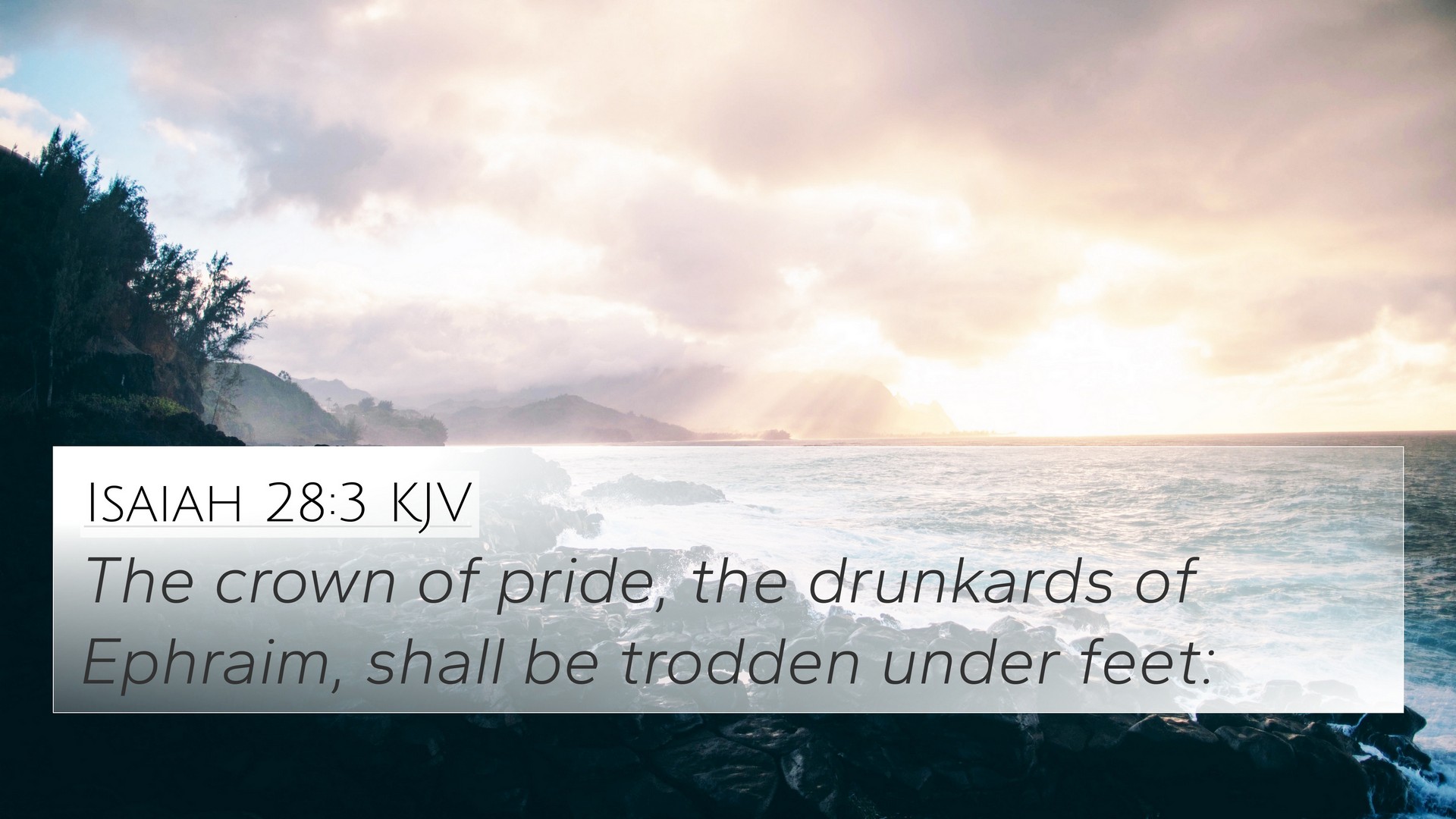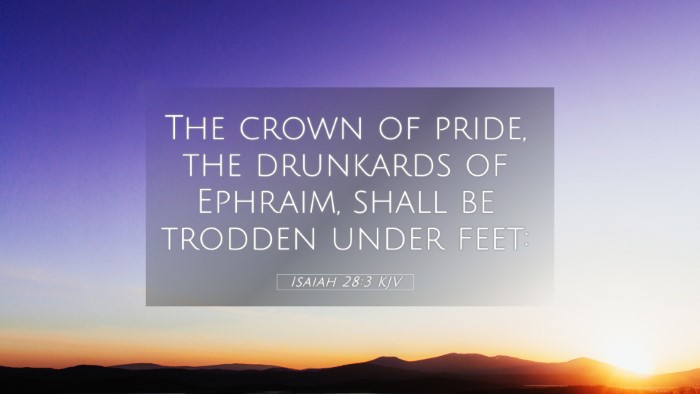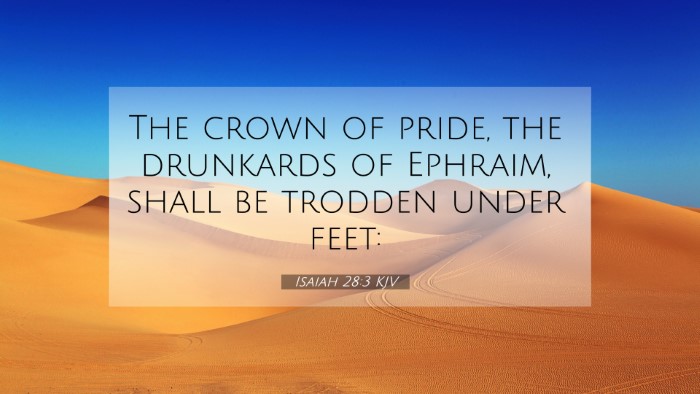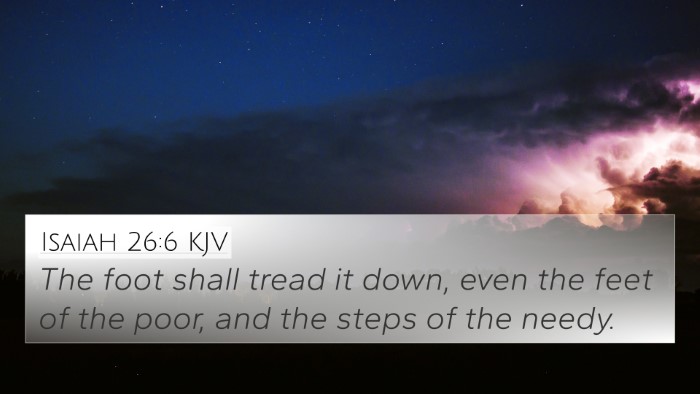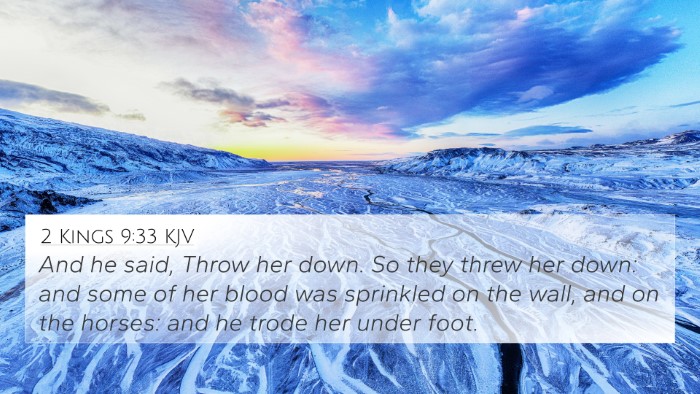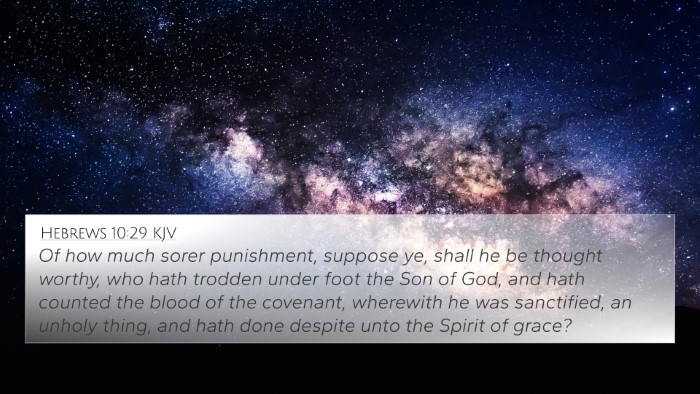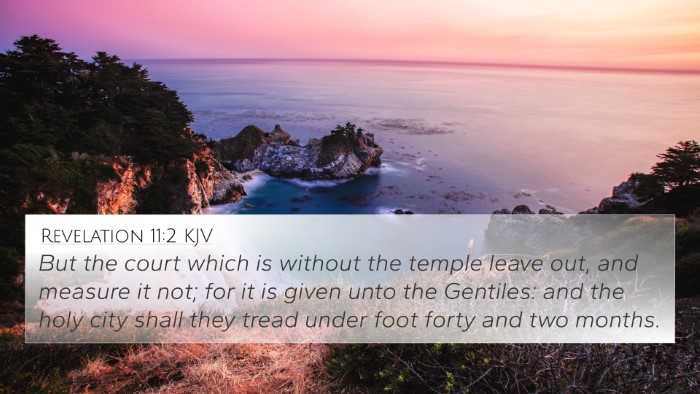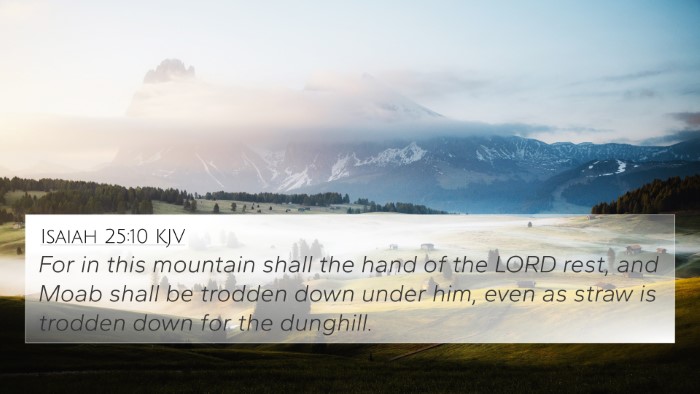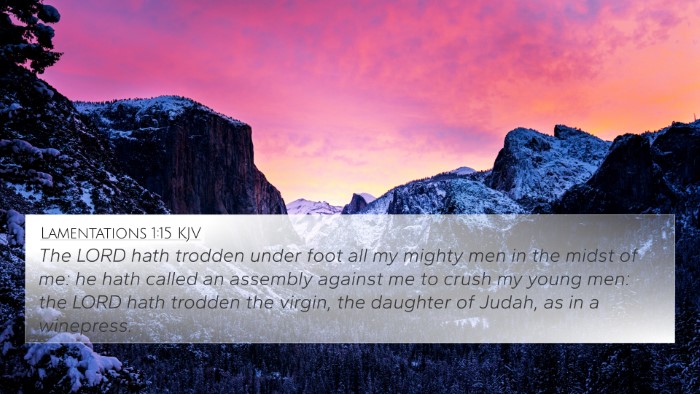Understanding Isaiah 28:3
Isaiah 28:3 states, "The crown of pride, the drunkards of Ephraim, shall be trodden under feet." This verse presents a vivid metaphor reflecting the downfall and judgment that befalls those who are prideful and indulgent, particularly the leaders and people of Ephraim, a representation of the northern kingdom of Israel. The insights from public domain commentaries, including those by Matthew Henry, Albert Barnes, and Adam Clarke, shed light on the multifaceted meanings embedded in this scripture.
Commentary Insights
Matthew Henry's Commentary
Matthew Henry emphasizes the "crown of pride" as symbolic of the arrogance and haughtiness found among the leaders of Ephraim. He notes that their pride leads to a false sense of security, ignoring the impending judgment from God. The "drunkards" are viewed not only literally but as metaphors for those who are morally and spiritually inebriated, caught up in their sins and excesses.
Albert Barnes' Commentary
Albert Barnes elaborates on the consequences of Ephraim's prideful attitude. He indicates that their arrogance will not protect them from God's judgment; instead, it will render them vulnerable. Barnes correlates the imagery of being "trodden under feet" to the ultimate fate of those who oppose God, highlighting how their downfall serves as a cautionary tale for all nations.
Adam Clarke's Commentary
Adam Clarke notes the implications of this verse in understanding divine justice. He stresses that the imagery reflects the humiliation that comes from their prior exaltation. Clarke discusses how God often brings down the proud, using this situation as an example of how the people need to repent to escape judgment.
Cross-referencing Biblical Texts
Isaiah 28:3 can be understood more profoundly through various cross-references to other biblical texts. Below are related verses that share thematic and contextual connections:
- Proverbs 16:18: "Pride goes before destruction, and a haughty spirit before a fall." This verse reflects the theme of arrogance leading to downfall.
- Jeremiah 48:29: "We have heard of the pride of Moab—he is exceedingly proud." This illustrates how pride ultimately causes destruction.
- James 4:6: "But he gives more grace. Therefore it says, 'God opposes the proud, but gives grace to the humble.'" A New Testament reference that emphasizes God's stance against pride.
- Luke 1:52: "He has brought down the mighty from their thrones and exalted those of humble estate." This shows the reversal of fortunes orchestrated by God.
- Psalm 36:11: "Let not the foot of pride come upon me, nor the hand of the wicked drive me away." This highlights the dangers of pride.
- 1 Peter 5:5: "Likewise, you who are younger, be subject to the elders. Clothe yourselves, all of you, with humility toward one another, for 'God opposes the proud but gives grace to the humble.'" A significant parallel from the New Testament encouraging humility.
- Ezekiel 16:49: "Behold, this was the guilt of your sister Sodom: she and her daughters had pride, excess of food, and prosperous ease, but did not aid the poor and needy." This verse also condemns pride and excess leading to judgment.
Thematic Connections
The themes explored in Isaiah 28:3 are prevalent throughout scripture, demonstrating God's consistency in addressing pride and moral decay. The connections between these verses create a tapestry that underscores several key themes:
- Judgment on Pride: Multiple verses portray God's judgment against prideful nations and individuals.
- Call to Humility: Many scriptures include directives towards humility and righteousness.
- Spiritual Inebriation: The metaphor of drunkenness serves as a theme for spiritual blindness and moral collapse.
- Divine Justice: The consistent message of justice that God enacts upon those who oppose Him, protecting the humble.
Conclusion
Understanding Isaiah 28:3 requires a comprehensive approach to its rich language and profound implications. The combined insights of Matthew Henry, Albert Barnes, and Adam Clarke elucidate the dangers of pride, the inevitable downfall of a haughty spirit, and the importance of humility. Through diligent cross-referencing with other biblical texts, we grasp a broader scriptural narrative that informs our lives and guides our moral and spiritual endeavors.
